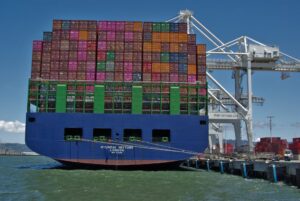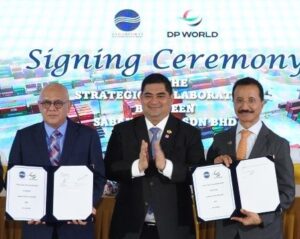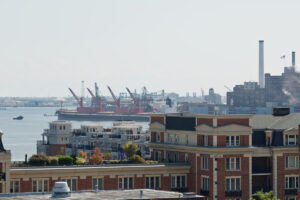A freeport or free trade zone is a specifically designated area where tariffs on imports are either substantially cut or waived in the hope of stimulating economic growth and trade.
In August 2019, the UK Government unveiled a plan to launch several freeports in order to protect its trading links following its withdrawal from the European Union.
In March 2021, the Government announced eight freeport locations around England: the Thames (including London Gateway Port and the Port of Tilbury), Liverpool City Region, East Midlands, Freeport East (Felixstowe and Harwich), Plymouth & South Devon, and the Humber region.
How do freeports work?
Essentially, freeports, also known as free trade zones, are meant to cut costs and bureaucracy, at the same time as encourage innovation.
A freeport or zone is an area inside the boundary of a country, but is considered a separate entity for the purpose of customs.
In some cases, businesses that operate within these areas are given incentives, such as tax breaks.
A good example of this is the free zone in the Canary Islands, Spain, where the there is a corporation tax of 4%, compared to 25% in the rest of the country.
What is the UK freeport plan?
Around 35 consortia, comprised of local councils, Local Enterprise Partnerships (LEPs), and businesses across the UK applied to the scheme for their local area prior to the freeport deadline on 8 February 2021.
Nationally, there is considerable support from seaside ports to become a freeport. Each submission highlighted the transformative potential accompanying tax reliefs and reduction of red tape would mean for driving productivity, innovation, and investment in the area.
The Solent claims freeport status can attract more than £2 billion ($2.75 billion) into the region – as well as connecting with the nearby Centre for Enzyme Innovation to develop green solutions for the breakdown of plastics in Portsmouth.
The Thames Freeport consortium’s submission pledged freeport status will foster innovation by creating a ‘digital economic zone’ with the Dagenham engine facility from Ford, utilising the river for intra-port movements.
In East Anglia, the Port of Felixstowe and Harwich International Port will develop a 68-acre logistics park.
Can freeports boost the economy?
Numerous economic studies suggest that freeports can stimulate growth by making it easier to import goods.
Manufacturing businesses operating within the surrounding free zones ultimately benefit from cheaper components compared to those outside.
There are also advantages to be had from the ‘agglomeration effect’, which is where a particular sector and subsequent economic activity is concentrated in one area.
However, they are not a guarantee. The UK Trade Policy Observatory (UKTPO) has warned that there needs to be investment and innovation in numerous areas alongside freeports if they are going to work. These areas include design, transport infrastructure, skilled labour and sufficient capital within the free zone.
There remains concern over the impact of freeports in building growing innovation and encouraging investment into port communities.
David Swinney, Director of Policy and Research at the Centre for Cities, authored a 2020 post outlining how freeport status in Nissan’s Sunderland plant “won’t spur innovation” in the area as the highly-skilled production – such as engineering and design – is facilitated in Cranfield and Paddington, London.
Speaking to PTI, Swinney argued the government must invest directly in struggling port communities in order to foster innovation and high-skilled production that freeport status promises to bring.
“We had freeports until 2012 in Britain, and they didn’t do a great deal until they were scrapped,” he explained.
“If you’re promoting innovation in particular, you’re going to require a lot of high-skilled workers. The freeports idea doesn’t do anything about that, because it’s not tackling the reasons why these businesses are not locating to port areas.”
Furthermore, freeports and zones could not so much create new revenue but rather divert existing economic activity into the area through the promised tax breaks.
Related stories
‘A new chapter’: Teesside, Solent, Thames Gateway amongst Freeport status winners
Concerns on freeports innovation remain despite nationwide support









